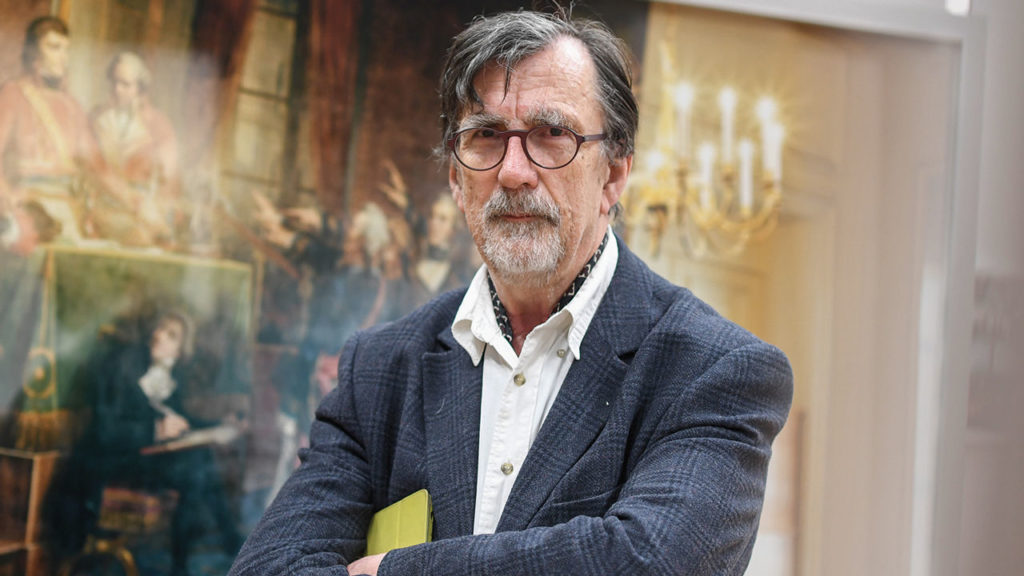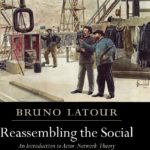
The social as association (Latour, in Gane 2004)
GANE, Nicholas. 2004. Bruno Latour: the social as association. In: The future of social theory. London: Continuum, pp.77-90.
ETNOGRAFIA DA CIÊNCIA COMO PONTO DE PARTIDA PARA UMA REVISÃO DA SOCIOLOGIA DO SOCIAL EM BENEFÍCIO DE UMA SOCIOLOGIA DOS PROCESSOS DE ASSOCIAÇÃO:
[B]ecause I started in science studies I realized that the social was not at the centre of sociology but rather what I call association. The etymology of these two terms is the same – the word socius which gives rise to the word ‘social’ is the same as ‘association’ – but ‘association’ leads us in a very different direction. (Latour, in Gane 2004:77)
POLITICAL SLOWING DOWN OF INNOVATION:
We have to slow down innovation to obtain due processes in the political representation of innovation. (Latour, in Gane 2004:78)
LITMUS TEST 1:
[T]ell me what you think of science, and I will tell you who you are. (Latour, in Gane 2004:79)
LITMUS TEST 2:
It sweems to me […] that a good test to know how modern someone is is to see how much of a distinction he or she will accept between matters of fact and intentional humans. (Latour, in Gane 2004:79)
O PAPEL DO INTELECTUAL (iluminar a política oculta dos objetos):
I am not politicizing these non-political matters of fact, for they are already political states of affairs; I am bringing them back into normal due process, which I think is the responsibility of intellectuals. (Latour, in Gane 2004:80)
(NEED FOR A) SOCIOLOGY OF OBJECTS:
Yes, the social sciences have spoken of objects, but mainly as superficial screens on which to project the social. (Latour, in Gane 2004:81)
THE TWO SOCIOLOGICAL TRADITIONS (Durkheim & Tarde)
There were clearly two traditions at a beginning of sociology: one a sociology of the social, and the other one the sociology of mobilities, transfers and what Tarde called ‘imitative rays’ (which is not a very good term but is really the translation of the equally bad term ‘actor-network’). […] One of them saw the social as a special part of reality, different from geology, biology, economics and so on, and another one saw very well that what counts in the social is the type of connections that are made. In this view, the social is not a homogeneous domain of reality composed of social elements, but a movement between non-social elements […] connected in certain ways. What I have been doing together with Michel Callon and John Law around the word network is to revise or revive this second tradition. (Latour, in Gane 2004:82-3)
WORK-NET:
What is important in the word network is the word work. You need work in order to make the connection. (Latour, in Gane 2004:83)
GABRIEL TARDE:
Tarde is the inventor of sociology just as much as Comte, Spencer and Durkheim, except he has been kicked out because he has been accused of psychologizing everything – which is the exact opposite of what he says. What he calls sociology is interpsychology, that is, the attention to all those circulating entities that for him are what the social is made of, and he never said a thing on intrapsychology. Basically he was an associationist very early on. (Latour, in Gane 2004:83-4)
MICRO-MACRO:
The macro is just a slight amplification or standardization of the micro. Organizations are not a pyramid or a sphere but the slight provisional amplifications of the variations of the micro, and that is why doing a monadology, doing local fieldwork, is as interesting, or in view of Tarde more interesting, than gathering statistics. (Latour, in Gane 2004:84)
SOCIETY DOES NOT EXIST:
Society does not exist – this is Tarde’s position and is my position too, as well as Mrs Thatcher’s… (Latour, in Gane 2004:84)
ETHER & RELATIVITY:
Just as physicists at the turn of the last century learned to do without ether, social scientists can learn to do without the social understood as society, but not the social understood as association, of course, because that is our business. (Latour, in Gane 2004:84)
EMPIRISMO:
I am an empiricist. I am trying to follow what the actors do. (Latour, in Gane 2004:85)
POLITICAL SOCIOLOGY (composition of the social):
In my view, it is this convocation of a collective that is now the duty of the social sciences and what I call politics: the progressive composition of the common world. […] I portray the social scientists as the diplomats of this collective (Latour, in Gane 2004:86)
EMANCIPATION MODE OF MODERN SOCIOLOGY (being ‘relevant’):
(Latour, in Gane 2004:86)
COMTE:
I like sociology, but I don’t like sociologists! […] Like Comte I even believe it is the Queen of the sciences! I think that the discipline as a collective has an essential role to play, exactly as important as Comte imagined – in a very different way but just as important. After all, what Comte wanted was for sociology to do this diplomatic work. (Latour, in Gane 2004:89)
DIGITAL QUALITATIVE QUANTIFICATION:
What is missing now might be the new type of numbers, the new type of data, because you cannot always stay at the limit of qualitative data. You have, at some point, to be able to get a different type of numbers for the same tasks that statistics used to give sociology at the beggining of the last century. This is the limiting factor now, but I believe a lot in digitalization, which highlights or materializes social connections in a way that may be very productive for giving qualitative sociology its quantitative arm. (Latour, in Gane 2004:89)




 LaSPA is located at the Institute of Philosophy and Human Sciences (
LaSPA is located at the Institute of Philosophy and Human Sciences (